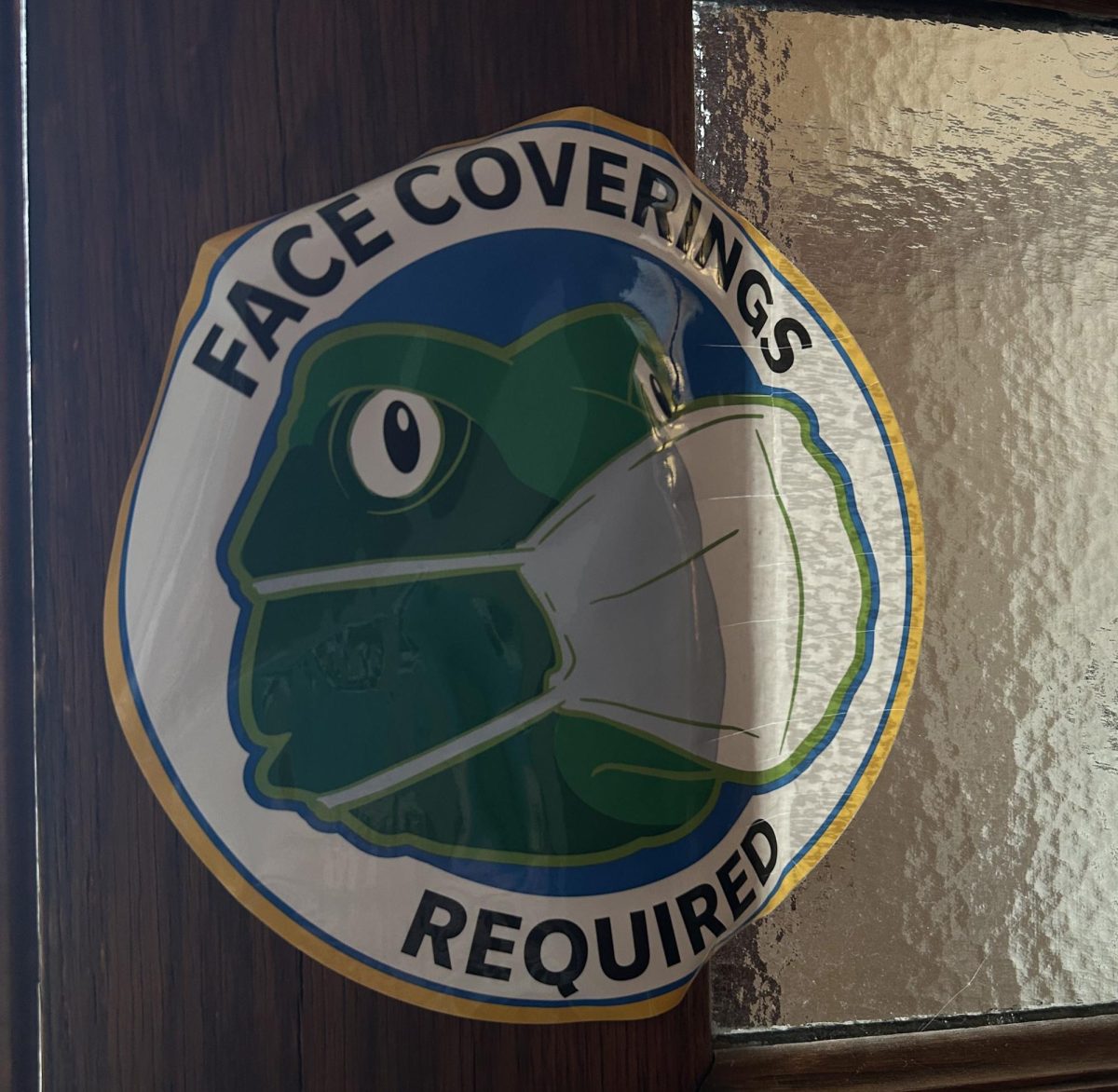Allegheny College has received a “Notice of Non-Compliance” regarding its accreditation — though college officials are confident the notice will be resolved after an additional report is submitted.
The Middle States Commission on Higher Education, Allegheny’s accrediting agency, notified the college in late June there was “insufficient evidence” that Allegheny was meeting Standard V of the MSCHE’s accreditation process. Standard V relates to a college’s assessment of its own educational processes and outcomes.
“They didn’t say that our faculty aren’t qualified, they didn’t say that your degree doesn’t mean anything,” Associate Provost for Institutional Effectiveness, Strategic Planning and Assessment Peter Bradley told The Campus. “All of that is fine. It’s about how we report what we’re measuring in the student learning experience.”
An example of “assessment” as defined in Standard V is the college’s Report of Student Experience, according to Professor of History and Global Health Studies Kenneth Pinnow. In RSEs, students write anonymous feedback on what they liked or did not like about a professor’s course.
“Most faculty will take that information and look at it before they teach again to kind of determine what seems to be working in terms of what I claim I’m doing — or not working,” Pinnow said. “All faculty are always, in a way, critically analyzing what they do in the classroom.”
MSCHE’s notice is a wrinkle in the college’s accreditation, which began with a self-study process almost two years ago.
That self-study resulted in a 107-page report released to the campus community for public comment and set the stage for a visit from a MSCHE team last March before the commission released their decision in June.
“What it means is that Middle States just wants to see some more information from us,” said Senior Associate Provost Jennifer Dearden. “They were very clear that we remain accredited and they just want to continue the process seeing more information and more evidence as to our assessment practices.”
Dearden co-chaired the committee leading Allegheny’s self-study process with Pinnow. Pinnow pointed out that MSCHE raised concerns with only one of its seven standards of accreditation.
“It’s very much focused on the one particular facet of the entire process,” Pinnow said. “It’s not about our overall accreditation; it’s very much focused on that particular area.”
Allegheny was not the only school facing this issue. 15 other schools accredited by MSCHE are currently warned of not being in compliance with the commission’s standards, and eight of those 15 warnings are in relation to Standard V, according to the MSCHE directory.
Allegheny has also been asked to follow up before, like during the college’s most recent reaffirmation of accreditation in 2014. At that time, the MSCHE required the college to provide a progress report on the development of assessment procedures and learning outcomes. That report was accepted in 2016 with no further notice.
“It actually is not uncommon for institutions — in general, for institutions to have follow-up that is required,” Dearden said.
January Report
College officials will have until mid-January of next year to submit an additional report showing that Allegheny meets Standard V, before a MSCHE team visits the college in February. The commission will then likely release its decision in June 2024, Bradley said.
However, even if the commission rejects Allegheny’s report, the college would not immediately lose accreditation, according to Bradley.
He said that there are four decisions the MSCHE could make in June 2024:
– Full reaffirmation of the college’s accreditation
– Reaffirmation with an additional report.
– A continuation of the warning for an additional year or two to resolve the issue.
– A “show cause” decision, where the college would have to show why it should not lose accreditation. If sufficient cause is not shown, the college can face “adverse action.”
“We fully expect reaffirmation at that point,” Bradley said. “In our heads, the worst case — the unlikely but possible scenario is reaffirmation with additional report.”
Bradley’s confidence — shared by Dearden and Pinnow — can be traced back to two things. The first is that, prior to MSCHE’s non-compliance warning, administrators were already examining the question of assessment.
“If you go back to the self study that we wrote, one of our recommendations was to strengthen what we call the ‘culture of assessment’ here on campus,” Pinnow said. “This was already on our radar in some ways, as an area that needs constant attention and innovation and improvements. We would be emphasizing elements of this regardless.”
One example of that is Bradley’s own position of associate provost for institutional effectiveness, strategic planning and assessment. The college began searching for someone to fill the role in the fall of 2022 before hiring Bradley in February of this year.
“It (the self-study) outlines a number of things that have to happen across campus or want to happen across campus, and a number of them fall under my job description,” Bradley said.
He pointed to nine-year tenure at Ferris State University — a public institution of more than 10,000 students in Michigan — as a time where he saw the requirements for Standard V be properly implemented during a successful reaffirmation of accreditation.
Among the other changes planned include the purchase and use of organizational software from Texas firm Watermark Insights, designed to help standardize assessment processes by unifying data into a single platform.
“It will help us be able to click a button and produce a report that they (MSCHE) will understand,” Bradley said.
Dearden also pointed to the nature of Allegheny’s submission to the MSCHE as part of the reason for the non-compliance.
“The majority of institutions submit a different type of report that’s called standards-based, where they have seven chapters, each chapter is about a standard, so the majority of people in Middle States are looking for a very formulaic response in their report,” Dearden said. “We did something that was a little bit more narrative, and we think that in doing so — while we felt that it really helped let the Allegheny community see themselves in the report, some things might have gotten lost in translation to outside readers.”
Since the January report will be focused solely on Standard V, Dearden said it will be easier for the college to demonstrate evidence of being in compliance.
A task force formed to respond to the notice submitted a report Sept. 1 with recommendations on how to respond; those recommendations include the creation of a standing committee to write the January report.
In the meantime, Dearden said she is confident that the warning from MSCHE is just that — a warning.
“We are absolutely still accredited, and we have no reason to believe that that’s not going to be the case going forward,” Dearden said. “We are very confident in what we’re going to be submitting to Middle States — that will satisfy what they are looking for.”











